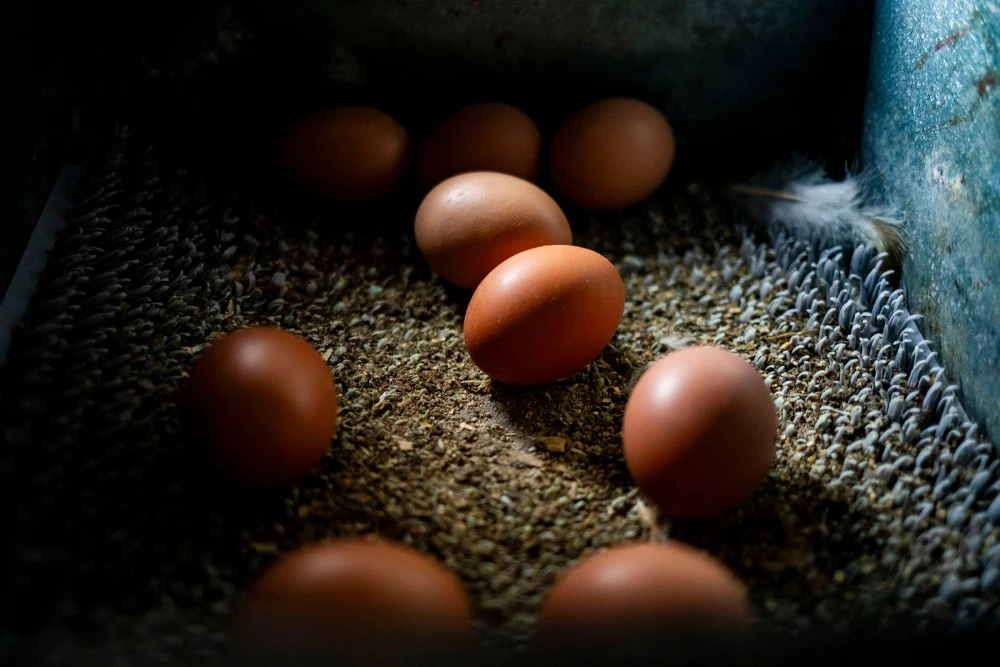The United States is in chasing eggs in Europe, looking for solutions to reduce prices at home

[ad_1]
Schoeniche, Germany – The United States government is chasing global eggs, which seeks to obtain egg exports from Europe and beyond to address a severe shortage that may cause grocery egg prices to record levels.
The United States is approaching European countries to export eggs
The US Department of Agriculture has arrived in many countries, including Germany, Italy, Poland and Sweden, to help reduce the shortage, which resulted from bird flu outbreaks, according to European industry groups.
However, providing eggs in the United States will not be simple for foreign producers – not because of the political tensions or commercial definitions imposed by President Donald Trump or threatening them against the main American trading partners.
European deficiency and local demand
Even if European countries are ready to help, many face a decrease in eggs due to the constant bird flu outbreak and the high domestic demand, especially before Easter. One of the most important obstacles, however, is the blatant difference in safety regulations between the United States and Europe when it comes to preventing salmonella pollution.
In the United States, food safety regulations require that eggs be cleared and cool before they reach store shelves. In contrast, the European Union safety standards impose non -washed and without cooling eggs.

Various ways for egg safety
“These two systems cannot be more different,” said Hans Peter Goldic, president of the German White Association. In Europe, it is common for eggs to be sold with feathers or even traces of chicken waste are still connected.
David Carlsch, a farmer on the Sabalos Poultry Farm in Shuwnch, Germany, explained that the process of selling eggs on his family farm is simple: eggs are collected from nests, placed in a carton, sold at the site or from a refrigerated sale machine abroad. “The demand at Easter time is, of course, very high, as many children want to draw eggs,” said Karlsch.
Poland responded to the American investigation
Poland, a major egg, responded to the United States inquiring about the availability of eggs, according to Katarzina Gauska, director of the poultry and national feed room. The issue of washing versus unwashed eggs has become a major factor in discussions, as European officials were wearing the request from the United States
In most European Union countries, eggs are not washed due to fears that removing natural protective coating from eggshell makes them more vulnerable to bacteria. Polish veterinary officials are currently evaluating whether the country’s farmers can meet the requirements of American food safety, including whether Poland has a similar inspection system and whether there is a major outbreak of influenza in birds.
European Union regulations to wash eggs
Although the European Union regulations state that table eggs “will not be washed or cleaned,” Member States have some flexibility if they allow eggs washing in packing factories decades ago.
In Denmark, for example, washed eggs are the base, but Sweden and Norway have informed the United States that they have no additional export eggs, according to Georgen Nieberg Larsen, CEO of the Danish Eggs Association.
Switch
Currently, any increasing egg imports for the United States from Europe are more likely to come in powder or other products that can be frozen or dried. Larsen added that the Poland Commercial Association told US officials that although there may be a limited availability of coincidence eggs, the country can provide “very large quantities” of processed egg products.
The role of processed eggs
The processed eggs are usually vaporized to prevent foods transmitted by food and are used in food manufacture or by companies such as restaurants and hospitals and the homes of the elderly, according to the US Department of Agriculture. Products such as baked goods, pasta and sauces often often have egg powder.
Europe faces its own production issues
In addition to communicating with other European countries, US officials have also explored the possibility of identifying the source of egg supplies in emergency situations from farmers in the Veneito region of Italy, according to Colrieri, the main agricultural pressure organization in Italy.
